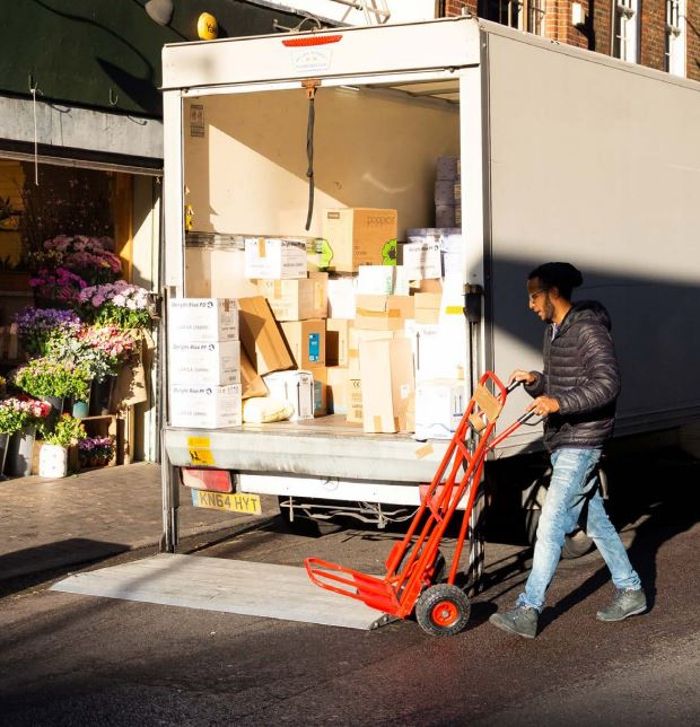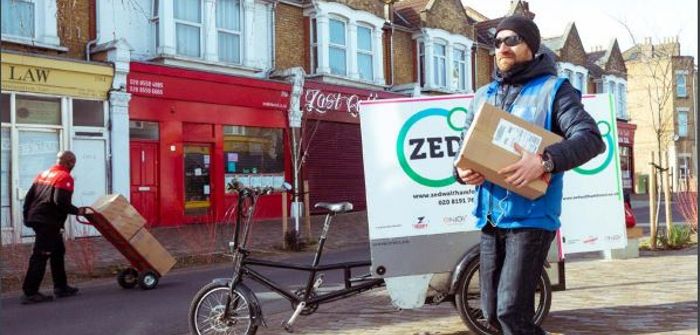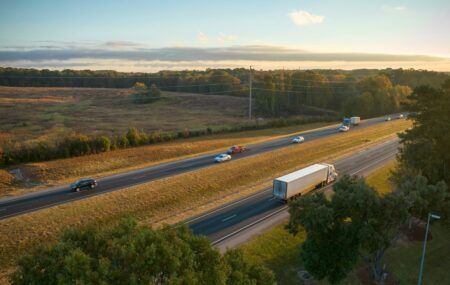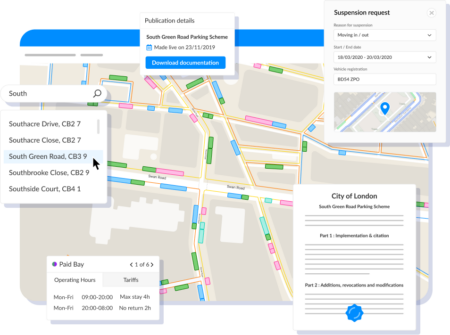The Mayor of London, Sadiq Khan, and Transport for London (TfL) have unveiled an ambitious plan to work with boroughs, businesses and the freight and servicing industry to transform how deliveries are made in the UK capital, reducing road danger and helping to clean up the city’s air.
Trucks and vans are vital for London’s economy. Half of the value of household expenditure, around £79bn (US$103bn) per year, relies on road freight. However, the movements of goods vehicles in the capital have increased by around 20% since 2010, contributing to poor air quality, congestion and road danger.
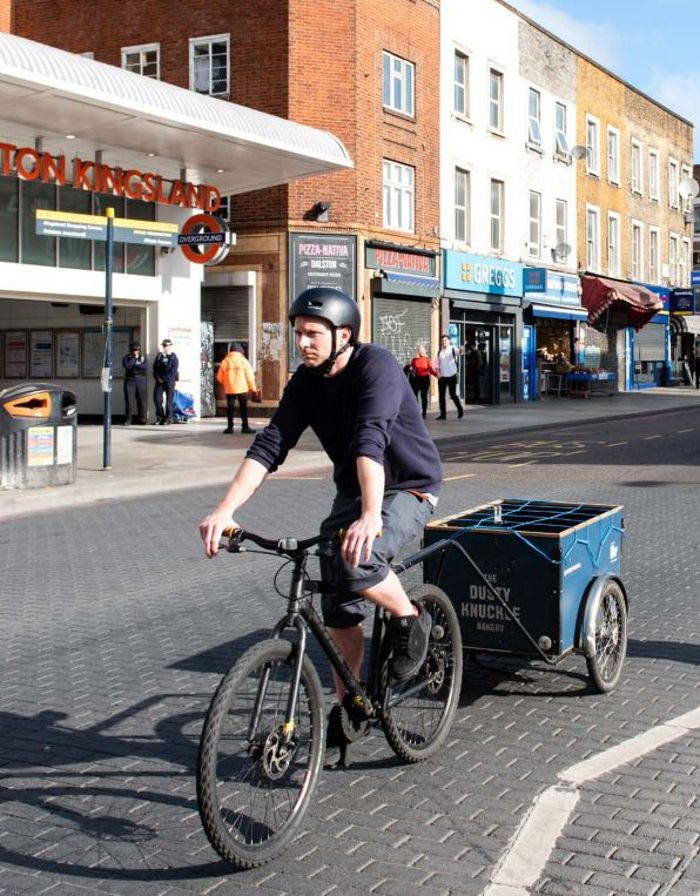 Trucks and vans currently account for around 20% of road traffic in London and about 33% in the city center during the morning peak. TfL research shows that heavy goods vehicles are involved in 63% of fatal collisions with cyclists, and 25% of fatal collisions with pedestrians, despite only making up 4% of the overall miles driven in the capital. Goods vehicles also account for around a third of all nitrogen oxide emissions in the capital.
Trucks and vans currently account for around 20% of road traffic in London and about 33% in the city center during the morning peak. TfL research shows that heavy goods vehicles are involved in 63% of fatal collisions with cyclists, and 25% of fatal collisions with pedestrians, despite only making up 4% of the overall miles driven in the capital. Goods vehicles also account for around a third of all nitrogen oxide emissions in the capital.
The mayor’s Freight and Servicing Action outlines a bold program to help address these challenges. It sets out how the industry can continue to meet the freight and servicing needs of London’s growing population and economy, while reducing the number of trucks and vans entering Central London during the morning peak by 10% by 2026.
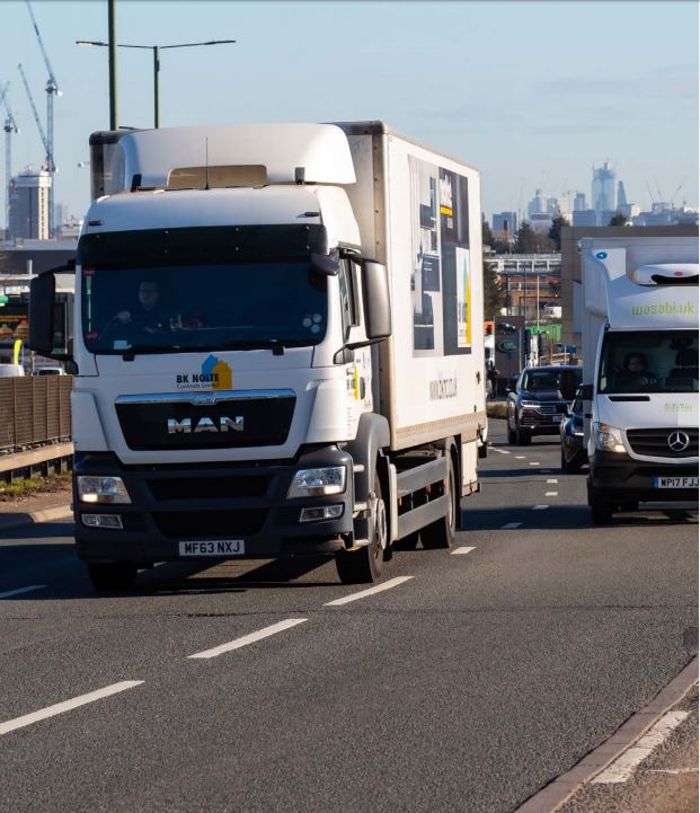 Encouraging Londoners to choose more sustainable delivery options is key, as sales online have doubled since 2012. Between 200,000 and 400,000 personal deliveries are made to offices in Central London every day, with every parcel having an impact on air quality and congestion.
Encouraging Londoners to choose more sustainable delivery options is key, as sales online have doubled since 2012. Between 200,000 and 400,000 personal deliveries are made to offices in Central London every day, with every parcel having an impact on air quality and congestion.
Key actions in the plan include:
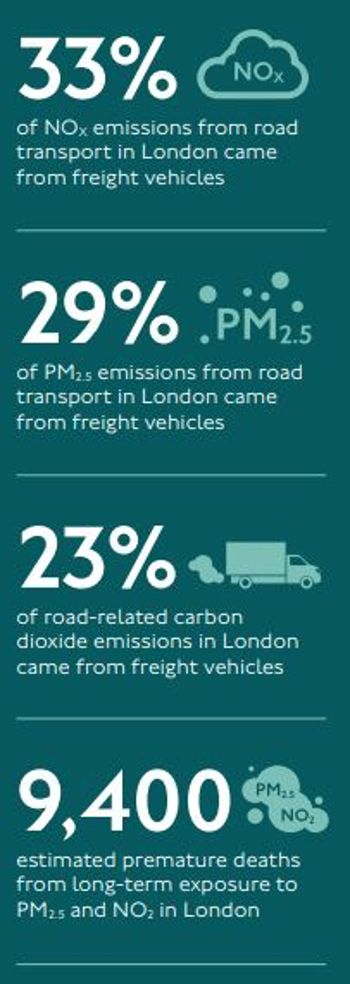
- Working with boroughs to better coordinate the control of freight movements on the city’s roads, including supporting London Councils’ review of the London Lorry Control Scheme, which helps manage noise nuisance from the largest trucks during unsocial hours and allow more deliveries to take place during off-peak hours;
- Offering more click and collect points at Tube stations, with TfL launching a tender for space in their stations and open more parcel lockers across the transport network;
- TfL will make land available for micro-distribution centers in key locations to support sustainable last-mile deliveries in neighborhoods across the capital, including by bike;
- TfL will also work with businesses to offer ‘green’ delivery slots, which enable shoppers to choose a window when drivers are already in their area;
- Reducing harmful emissions by launching the Central London Ultra Low Emission Zone (ULEZ) next month, which will bring in stricter exhaust emission standards for most vehicles, and supporting boroughs in introducing local zero emission zones at pollution hot spots;
- Making freight vehicles safer by launching the HGV Safety Permit Scheme, incorporating the world’s first Direct Vision Standard for trucks, with the first permits under the scheme to be issued later this year.
“We need to be smarter about how we manage the millions of van and lorry journeys each week,” said Khan. “By supporting businesses to switch to electric vans and cargo bikes, we will make freight more efficient while also cleaning up London’s air.”
